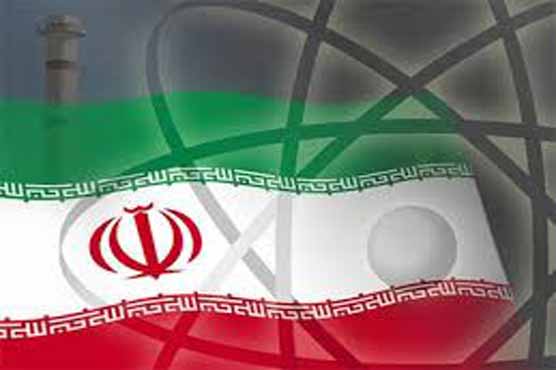Iran nuclear talks: the main issues

Iran has repeatedly said that its nuclear programme is peaceful.
GENEVA (AFP) - Iran and six world powers meet in Geneva from Wednesday for the third time since the election of President Hassan Rouhani to try to end the decade-old standoff over Tehran's nuclear programme.
IRAN AND THE BOMB
Iran says its nuclear programme, which has been steadily expanding for the past decade, is peaceful. Many in the international community suspect that it is aimed at developing nuclear weapons.
The United States and Israel, the latter widely believed to have a formidable nuclear arsenal itself, have refused to rule out military action against the Islamic Republic.
SANCTIONS
Calling on Iran to suspend parts of its programme, the UN Security Council has passed four sets of sanctions since 2006.
Additional unilateral US and EU sanctions have resulted in oil production sliding to one million barrels per day from 2.5 million before.
Iran's currency has lost nearly two-thirds of its value in two years and official inflation has rocketed to over 40 percent.
President Barack Obama is pressing US lawmakers not to go ahead with more sanctions, fearing this could scupper the delicate negotiations.
URANIUM ENRICHMENT
The most contentious area is uranium enrichment, which involves spinning uranium gas at supersonic speeds in machines called centrifuges to increase the proportion of a fissile isotope.
Iran says it is enriching to five-percent purities for nuclear power and to 20 percent for medical isotopes.
Both types, and in the case of 20 percent quite easily, can be further processed to weapons-grade: 90 percent.
Iran already has a stockpile of enough low and medium-enriched uranium for several nuclear weapons -- if it chose to enrich to weapons-grade.
At present such a move would be detected by the UN atomic watchdog, the IAEA, but if Tehran were to add to its 19,000 centrifuges, this may one day no longer be the case.
Iran is also building a reactor at Arak which could provide it with plutonium, an alternative to uranium for a bomb, but this is a longer-term concern than uranium enrichment.
The International Atomic Energy Agency said last week that Iran has not expanded its activities in the last three months, in what analysts said was a confidence-building measure by Iran ahead of the Geneva talks.
WINDS OF CHANGE, OR HOT AIR?
Numerous diplomatic initiatives to resolve the standoff have failed over the past 10 years. But the election of relative moderate Rouhani this year has sparked renewed hope.
Rouhani held a 15-minute phone call with Obama in September, the highest-level contact between the two countries' presidents since the Islamic revolution ousted the US-backed Shah in 1979.
Israel, widely assumed to have a formidable nuclear arsenal itself and which has refused to rule out bombing Iran, has dismissed Iran's overtures as an empty charm offensive.
PEACE BY POWERPOINT
In talks with world powers -- the US, China, Russia, Britain, France and Germany -- in Geneva in mid-October, Zarif presented a new proposal on PowerPoint he said could end the dispute "within a year".
Foreign ministers flocked back for three days of gruelling talks between November 7-10 but amid divisions among the powers a deal failed to emerge. It was agreed to return from November 20.
FIRST-PHASE DEAL
The P5+1 powers proposed a deal whereby Iran stop enriching uranium to 20 percent, reduce existing stockpiles and agree to halt construction at Arak.
Global powers would in exchange "reversibly" ease some sanctions and unblock billions of dollars in oil revenues stuck in frozen bank accounts, although the core sanctions would remain.
This though would only be for an interim accord while details of a final deal are worked out over coming months to reduce Iran's programme to a size acceptable to the international community while sanctions are lifted.



